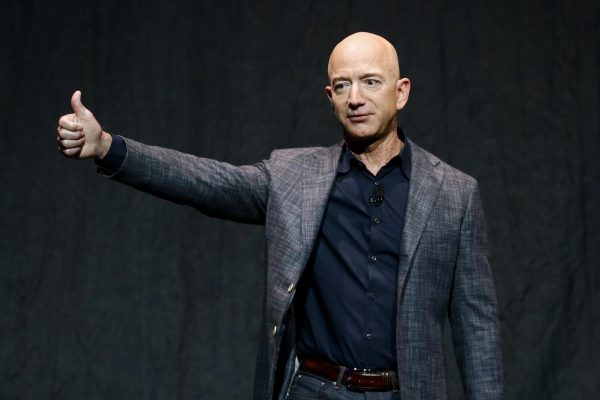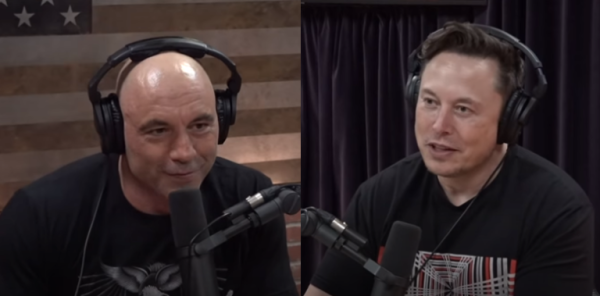
Legacy media has been the United States’ blueprint for how to sustain its foundation to uphold the experimental edifice of democracy. Most other wordly structures have had to refurbish, renovate or completely replace their own when dilapidation begins to set in. In times where the material holding America together has become brittle, it is the press that reinforces it; when former President Richard Nixon nearly upended American democracy, it was The Washington Post who kicked him out as America’s supervisor and demanded a more proper caretaker. But we now live in a time where vested actors within the industry of democratic maintenance treat the work as a side-hustle and collude with its most polarizing disruptors. As corporations leave the free news market though, a vacuum has opened up for the mom-and-pop shops.
The Washington Post began endorsing candidates—specifically former President Jimmy Carter—in order to move past the Nixon years that successor and incumbent Gerald Ford still stank of. The Post’s 2016 rebrand produced the mantra of “Democracy Dies in Darkness” in response to President Donald Trump’s first-term victory, a phrase co-opted by owner–and Amazon Founder–Jeff Bezos. Fast-forward to 2024 where you find—under the direction of Bezos—The Post’s Publisher and CEO William Lewis claiming that the paper’s “roots” set a precedent for their decision to not endorse a candidate in the 2024 U.S. Presidential election–despite the paper’s editorial staff’s reported endorsement of Democrat Kamala Harris. The so-called roots that explained this decision rang as substantively hollow as a mid-life-crisis father justifying buying a sports car after years of SUVs because they had a Ferrari poster in their childhood bedroom. Take a few more steps into 2025, where the reality of a second Trump administration has barely set in, and Bezos is now putting his hand deeper into the cookie jar in reworking the entire opinion section in the reflection of his—and, really, Trump’s—image.
This is not a singular phenomenon in mainstream media. Some of the most prominent legacy media organizations suddenly became bastions of nonpartisanship in facing the reality of a Trump return to the White House. According to Nieman Lab, there has been exponential growth in top-100 circulation publications eschewing the formality of endorsing a presidential candidate. In 2008, 8 rejected to cosign a candidate, this grew to 26 by 2016, 44 by 2020 and 71 in 2024. One of the first steps into authoritarianism is the dissolution of the free press—mind you, a philosophical pillar of the U.S. Constitution.
The fact that these major resources for the polity decided to self-immolate even prior to the reality of Trump 2.0 shows the chilling effect that has come to embody this retrofitted administration of loyalists and demagogues.
The people are not happy about this either. The Post lost hundreds of thousands of subscriptions in the past several months that it built up during the Resistance era of liberalism that came to define them during the initial Trump years. The days of independently-minded journalists like Bob Woodward and Opinions Editor David Shipley leading the diverse intellectual charge are over with Bezos’ declaration that op-eds will now only concern “personal liberties and free markets.” In other words, Bezos is dog-whistling for fringe libertarians to complain about the government trying to take your gas-stoves in exchange for an European electric competitor. Shipley resigned immediately following Bezos’ editorial shift, further cementing the damage done by the Amazon billionaire.
What is happening at The Post is not an exception to the status quo but an indicator of a transitional state of affairs for mainstream media. The Los Angeles Times’s owner Dr. Patrick Soon-Shiong, who has personally voiced his support for Trump and his appointees, has similarly been trying to mitigate the anti-Trump rhetoric of his famously liberal publication, even going as far as to suggest placing a “bias-o-meter” next to not only op-eds, but actual reporting. This added insult to the injury of not endorsing a candidate for the 2024 presidential election.

There seems to be no simple explanation for why Bezos and Soon-Shiong are making these decisions. Yes, they appeal to the Trump administration and could help curry favor for future non-news-oriented business endeavors with the government. However, these publications are businesses themselves and ones that are being effectively disintegrated by these journalistic compromises.
Beyond these choices feeling like bad money moves, they also accelerate the precipitous decline in trust in news media by blatantly confirming the suspected biases of conspiracy theorists and average news-enthusiasts alike. This has inadvertently opened up a new lane for publications that are overtly biased with their ideological leanings to become the flag-bearers of trustworthy media by way of unabashed transparency.
Platforms like Substack and Medium are exactly that: platforms. They are mediators between an independent source of opinions or news and the reader. The authority of mainstream media has always had a push-pull effect on its audience; the pull of news that is supposedly guaranteed to be factual or at least the highest standard of its kind can also be a repellant when it seems to fail or exhibits some sort of alleged bias. More than this though, it implies a lack of agency to its readers or listeners who are supposed to take their words at face-value. Rather than stare at the talking heads on the screen or reading conflicting reporting about the same topic from multiple legacy sources, one could instead go read The Free Press and feel comfortable in knowing that they can form their own opinions without the ugly connotation of disagreeing with a Reuters or The New York Times.
There is obviously a populist element to the proliferation of independent and freelance journalism. A burgeoning parasocial relationship is inevitable in the process of paying for a subscription for the words of a singular person or small group rather than a corporate conglomerate. You start to ask “are they talking to me?” This sort of intangible value was realized by the Trump 2024 campaign team throughout their podcast blitzkrieg that involved the then-presidential candidate talking about everything from the effects of cocaine to UFC fighter performances. But even podcasters are not immune to the allure of consolidating power through an expansive platform. Joe Rogan, arguably the most famous podcaster in the world, has turned some fans away as he has transitioned from a curious, allegedly innocent knowledge-seeker to a staunch ideologue who endorsed Trump in 2024 and consistently lauds the verbal diarrhea of faux-president Elon Musk.
After restricting the media access of the Associated Press and Reuters, the Trump White House has increased the presence of favorable publications like Newsmax and The Blaze. These inclusions give smaller media organizations a bad rap by obfuscating what it means to be independent by connotating it with loyalty. Publications like The Bulwark and The Free Press, as well as writers like Matt Yglesias (Slow Boring) and Nate Silver (Silver Bulletin), make their biases and political leanings a part of their brand but do not swear to them. By superimposing publications like Blaze Media and The Daily Caller over the label of independent media, the current administration is trying to concentrate their influence on this unmitigated sector of the Internet infowars.
Truly independent journalists now have the task of picking up the pieces left by the demolition of the overarching mainstream press. They will have to navigate the appeal of unprecedented and outsized importance with the external pressures of America’s rightward-leaning socio-political zeitgeist.
